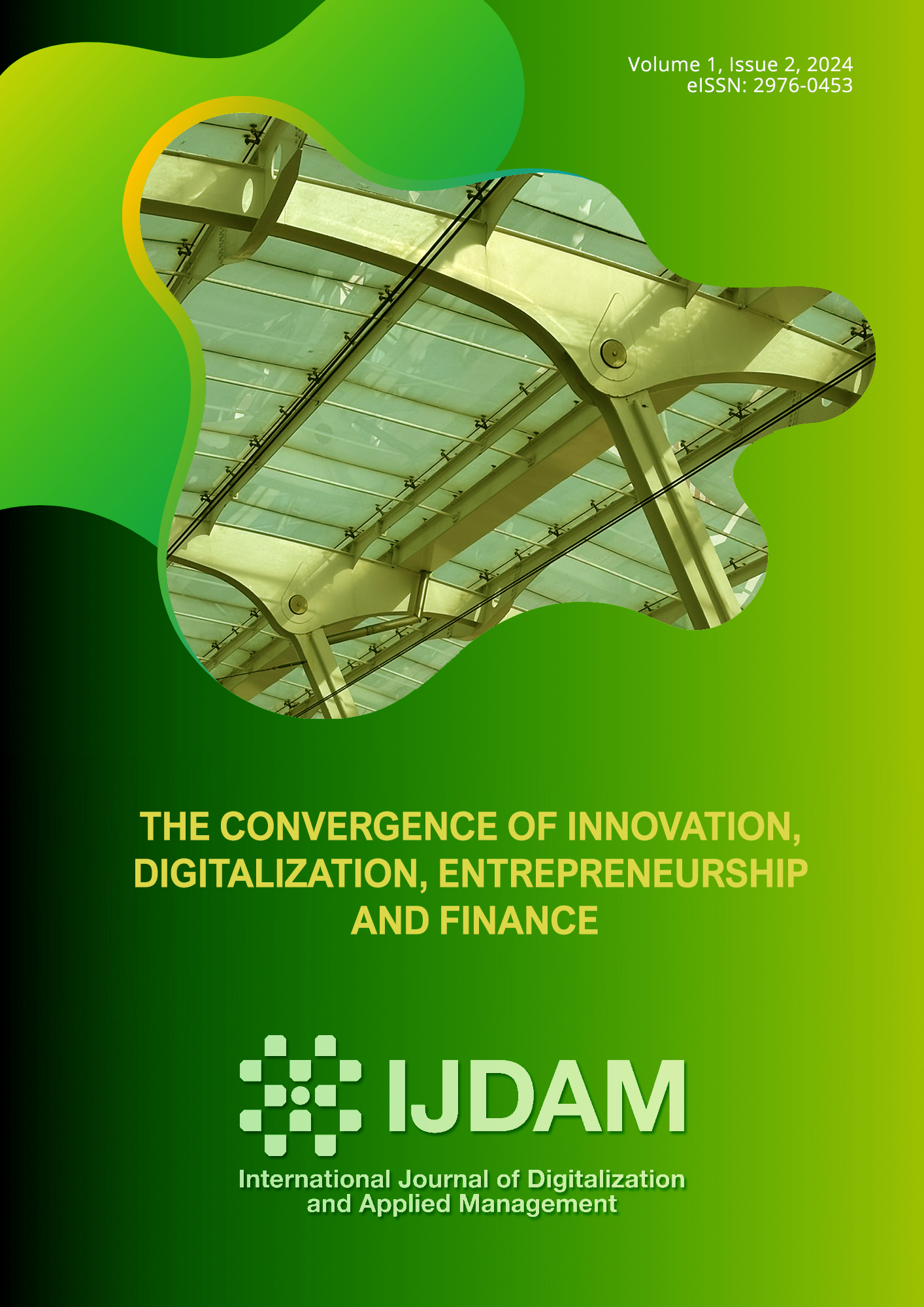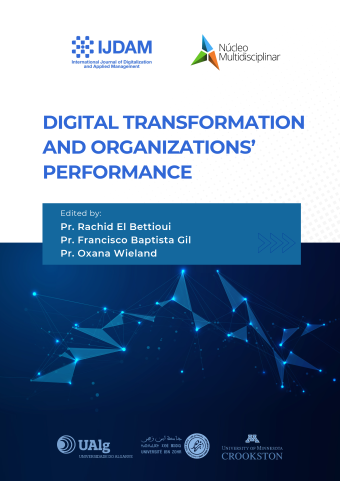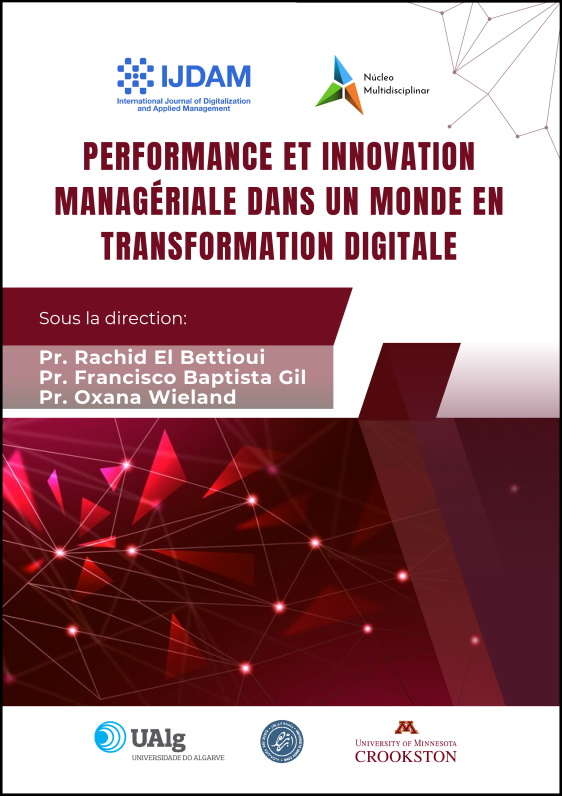Hybridization of the management controller's job
DOI:
https://doi.org/10.23882/ijdam.24132Keywords:
hybridization, technology, management control, public sector, artificial intelligenceAbstract
Organizations operate in a constantly changing environment, where technological mutations are constantly increasing. Adapting to new technologies is a major challenge. The aim of this study is to highlight the hybridization of the management controller profession in the light of digitalization. We will try to explore how the missions of the management controller have changed in the light of new information and communication technologies, as well as with the arrival of artificial intelligence tools. We will mobilize the theory of technology acceptance formulated by Davis. Initial results show that the deployment of new technological tools frees the management controller from routine tasks to participate in value creation and management support.
References
Anthony, R. N. (1965). Planning and control systems. . The Harvard Business School Press.
Bollecker, M. (2007). La recherche sur les contrôleurs de gestion : état de l’art et perspectives. Comptabilité Contrôle Audit Tome 13 (1), 87-106.
Bourguignon, A. (2003). Il faut bien que quelque chose change pour que l’essentiel demeure, la dimension idéologique du "nouveau" contrôle de gestion. Comptabilité -Contrôle et Audit Numéro spécial, 27-53.
Brands, K., & Holtzblatt, M. (2015). Business analytics: Transforming the role of management accountants. Management Accounting Quarterly 16 (3).
Cavelius, F., Endenich, C., & Zicar, A. (2018). L'impact de la digitalisation sur le rôle du contrôleur de gestion, . Transitions numériques et informations comptables. Nantes.
Cavélius, F., Endenich, C., & Zicari, A. (2020). Back to basics or ready for take-off? The tensions on the role of management controllers in the digital age. Comptabilité Contrôle Audit, 26(2), 89-123.
Ceglio, A. (2003). Entreprise Resource Planning systems and accountants: towards hybridization. European Accounting Review 12 (1), 123-153.
Davis, F. D. (1989). Perceived Usefulness, Perceived Ease of Use, and User Acceptance of Information Technology. MIS Quarterly, 13(3), 319–339.
Desplebin, O., Lux, G., & Petit, N. (. (2019). Comprendre la blockchain : Quels impacts pour la comptabilité et ces métiers? ACCRA 5 (2): 5-23.
Elbashir, M., Collier, P. A., & Davern, M. J. (2008). Measuring the effects of business intelligence systems: the relationship between business process and organizational performance. International Journal of Accounting Information Systems 9 (3), 135-153.
Ennajem, C. (2019). La construction de nouvelles relations entre contrôleur de gestion et managers opérationnels dans le contexte d’un contrôle de gestion décentralisé. . Recherches en Sciences de Gestion, 130, 109-144.
Fiol, M., & Jouault, P. (1991). Pour un contrôle de direction. . Revue Française de Gestion , 82-90.
Hopper, T. (1980). Role conflicts of management accountants and their position within organisation structures. Accounting, Organizations and Society 5 (4): , 401-411.
Lambert, C., & Sponem, S. (2009). La fonction contrôle de gestion : Proposition d'une typologie. . Comptabilité-contrôle-audit 15 (2): 113-144.
Morales, J. (2013). Le projet professionnel des contrôleurs de gestion : Analyserdes données pour aider les managers à prendre des décisions rationnelles? Comptabilité-Contrôle-Audit 19 (2): 41-70.
Reutter, J., Allain, E., & Landagaray, P. (2021). L’évolution des rôles du contrôleur de gestion à l’ère de la busniess intelligence. ACCRA, 85- 107.
Sathe, V. (1983). The controller’s role in management. Organizational Dynamics Winter: 31-48.
Siegel, G. (2000). Business partner and corporate cop : Do the roles conflict ? . Strategic Finance: 89-90.
Simons, R. (1995). Levers of control : How managers use innovative control systems to drive strategic renewal. . Harvard Business School Press.
Turning, A. M. (1995). Computing Machinery and Intelligence.Computation and Intelligence. American Association for Artificial Intelligence, Palo Alto, 44-53.
Venkatesh, V., & Davis, F. D. (2000). A Theoretical Extension of the Technology Acceptance Model. Journal Management Science, vol 46, issue 2 , 186-204.
Wren, P., Daly, M., & Burstein, F. (2021). Reconciling Business intelligence, analytics and decision support systems:Mote data, deeper insight. Desision support systems.
Le décret n° 2-22-580 du 10 chaabane 1444 (3 mars 2023) relatif à la mise en place du dispositif de contrôle de gestion au sein des départements ministériels.
Dahir n°1-03-195 du 16 ramadan 1424 (11/11/2003) portant promulgation de la loi n° 69-00 relative au contrôle financier de l’Etat sur les entreprises publiques et autres organismes, publié au bulletin officiel n° 5170 du 18/12/2003.
Arrêté du ministre des finances et de la privatisation n° 1549-05 du 18 kaada 1426 (20 décembre 2005) fixant les instruments de gestion des établissements publics éligibles au contrôle d’accompagnement.
Downloads
Published
How to Cite
Issue
Section
License
Copyright (c) 2024 Meriam DEKRI

This work is licensed under a Creative Commons Attribution-NonCommercial 4.0 International License.








